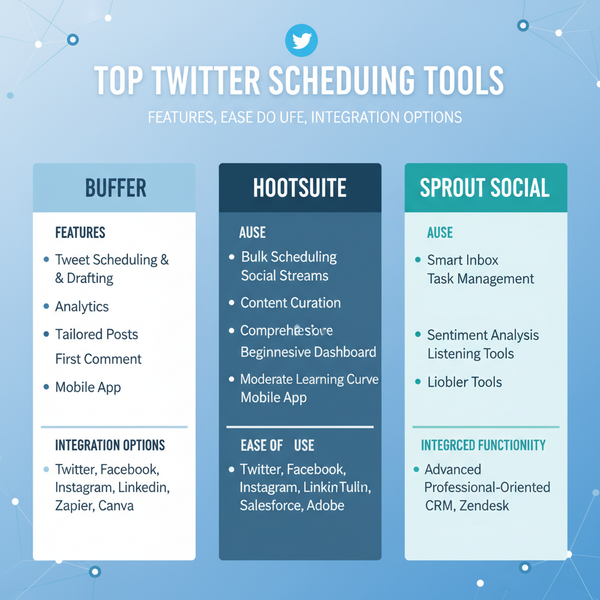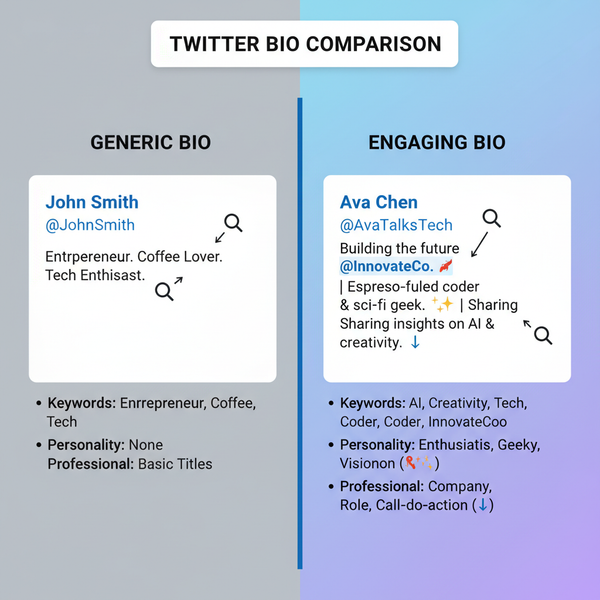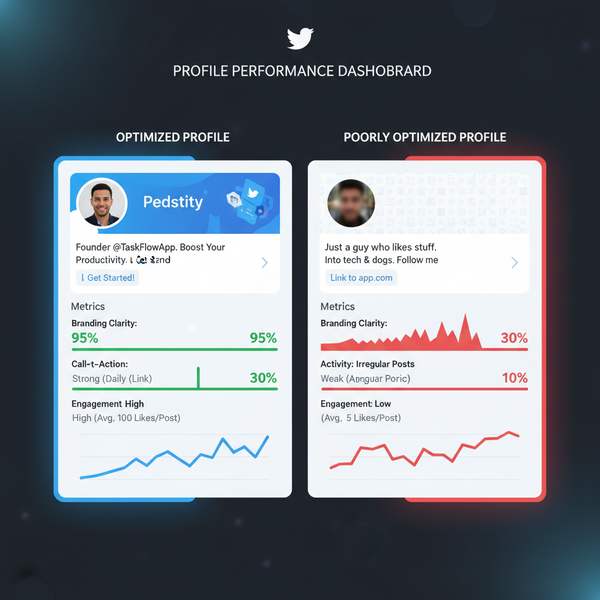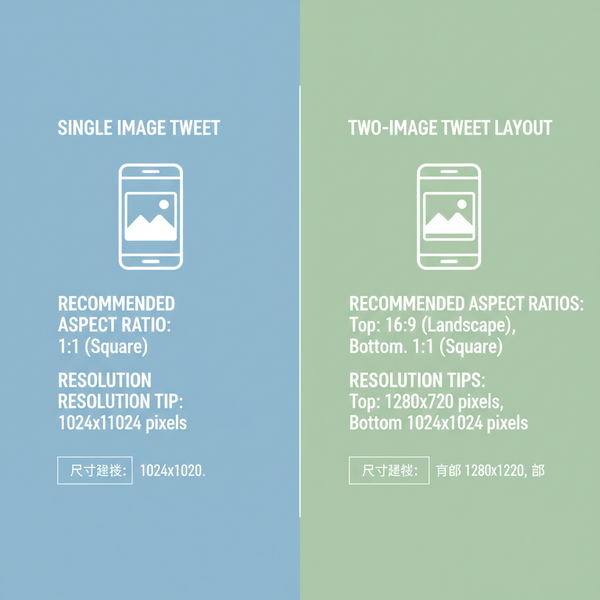Thread Meaning in Social Media Explained for Beginners
Learn what threads mean in social media, their origins, uses across platforms, and tips to create engaging, audience-friendly narratives.
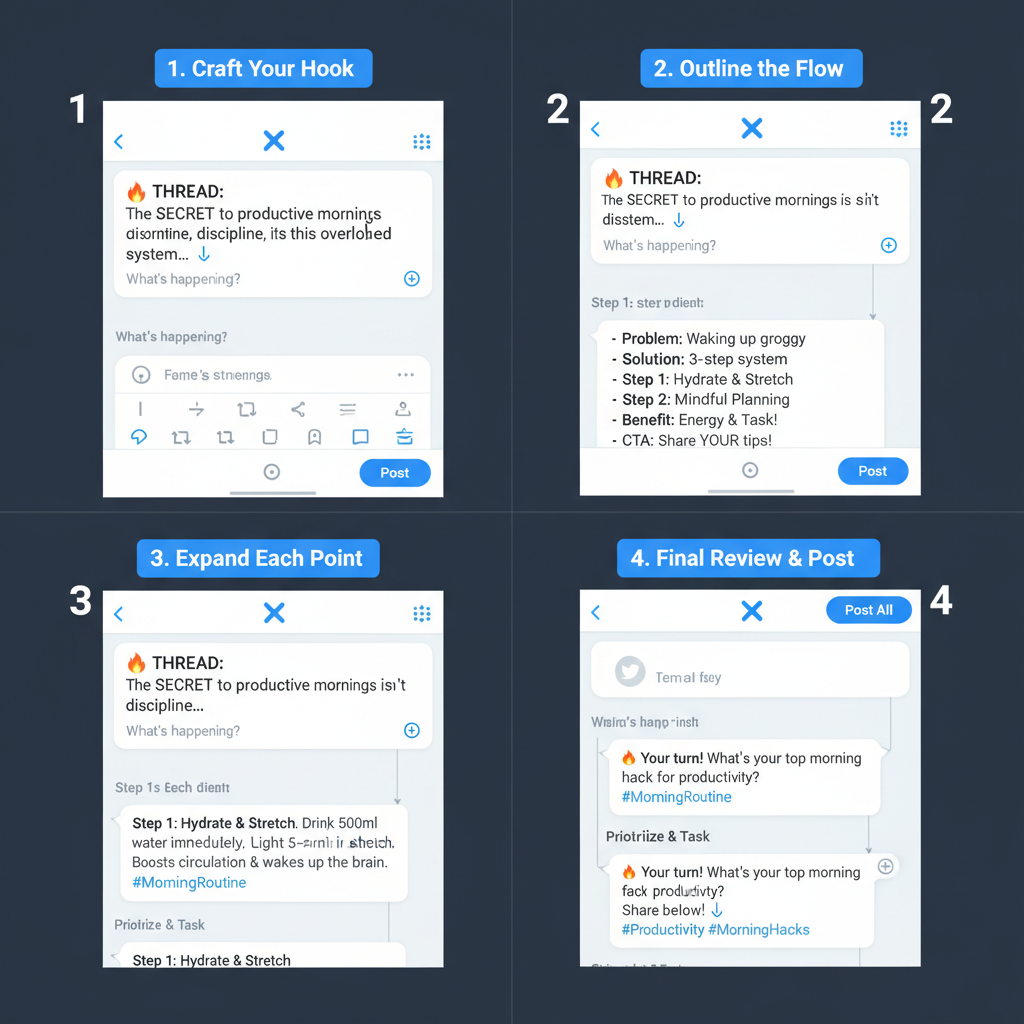
Thread Meaning in Social Media: A Beginner-Friendly Guide
In the fast-paced world of social media, the way we share stories and updates has shifted dramatically. One format making waves is the thread — a connected sequence of posts that builds a richer, more engaging narrative than a single update can achieve. This comprehensive guide explains the thread meaning in social media, explores its history, highlights usage across platforms, outlines how algorithms treat them, and provides actionable tips to create threads that captivate your audience.
---
What Is a "Thread" in Social Media?
A thread is a linked collection of posts focused on one topic, with each post adding to the previous, resulting in a coherent story or discussion. Platform variations include:
- Twitter/X: Threads are made of sequential tweets linked together, easily scrolled in order.
- Reddit: Often refers to an original post plus its comment chain for deeper subreddit discussions.
- Facebook: Threads can occur in long comment chains or Messenger exchanges.
- Instagram: Carousel posts or Story sequences can mimic a thread for visual storytelling.

Threads can share text, visuals, and interactive elements, making them adaptable to different audience preferences.
---
Origins of the Term "Thread"
The notion of a "thread" comes from pre-social media communication:
- Online Forums: In platforms like phpBB, a thread collected posts on a single subject, forming a structured conversation.
- Email Chains: A thread described connected emails under the same subject line.
- Bulletin Boards: Text-based conversation streams were organized as threads, with each reply adding to the discussion.
This terminology naturally shifted into social media, evolving to suit fast updates, rich media, and platform algorithms.
---
Threads vs. Single Posts
Threads and single posts serve different purposes for creators and audiences:
| Feature | Thread | Single Post |
|---|---|---|
| Length | Multiple connected entries | One standalone message |
| Depth | Allows complex storytelling | Limited detail |
| Engagement | Encourages prolonged interaction | Quick reactions |
| Algorithm Impact | Potentially surfaces multiple times | One-time impression |
Threads operate like "mini blogs" inside feeds, combining narrative depth with interaction potential.
---
How Threads Are Used
Creators and brands employ threads in diverse ways:
- Storytelling – Structured narratives shared over multiple posts.
- Education – Simplifying complex subjects into easy-to-read parts.
- Live Updates – Real-time coverage of events.
- Brand Narratives – Context-rich product or service promotions.
- Explainers – Step-by-step guides in digestible chunks.
Example: A journalist could publish an investigative thread on Twitter/X with quotes, images, and sources updated as news develops.
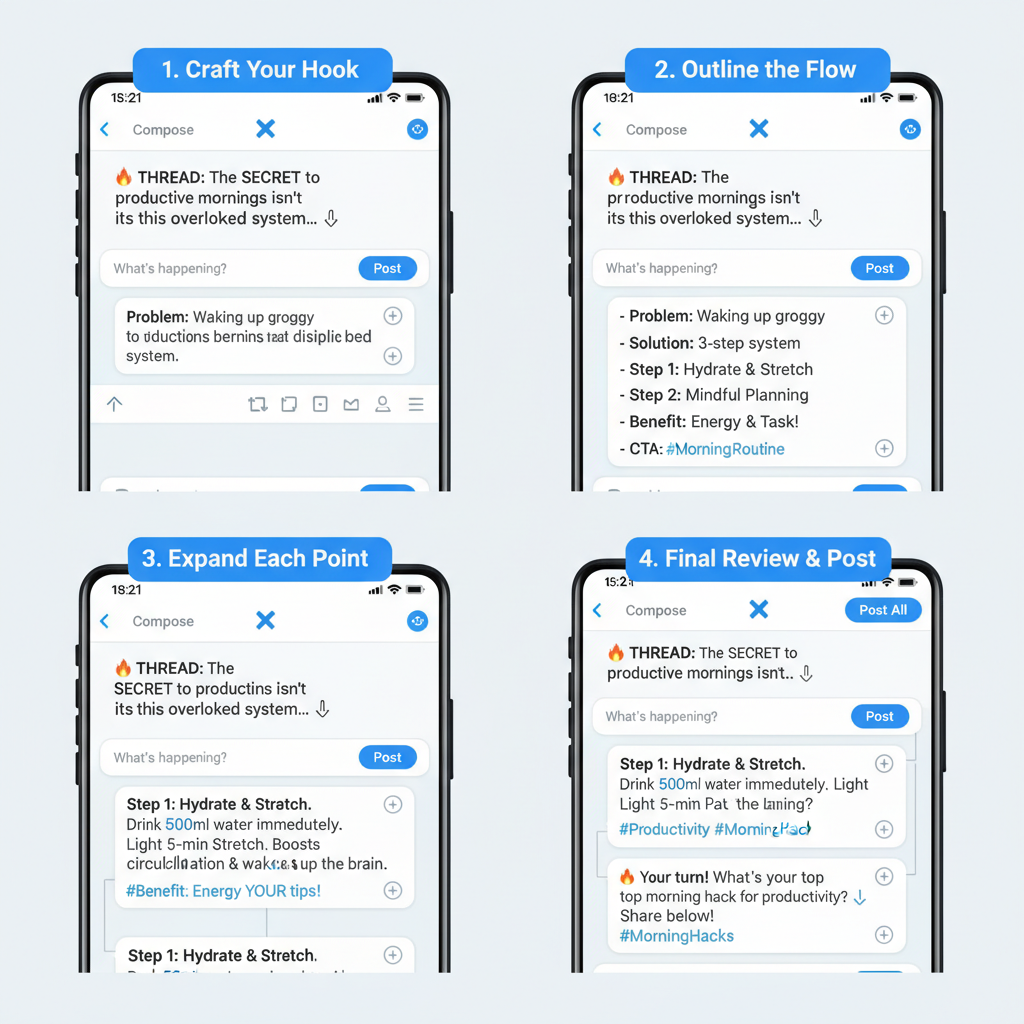
---
Step-by-Step Guide: Creating a Twitter/X Thread
Creating an effective thread involves strategy:
1. Start with a Hook
Open with a compelling statement, question, or teaser.
Did you know 80% of viral posts have one thing in common? Let's break it down 🧵2. Outline Your Flow
Map progression from introduction to conclusion:
- Intro → Context → Main details → Wrap-up → Call-to-action
3. Add Visuals
Include images, GIFs, or clips to sustain reader interest.
4. End With Engagement
Prompt discussion, shares, and other interactions.
Quick Checklist:
- ✅ Strong opening hook
- ✅ Clear, consistent tone
- ✅ Logical sequence
- ✅ Media integration
- ✅ Growth-focused ending
---
Best Practices for Structuring Threads
- Number Posts — Label them (1/10) for easy tracking.
- Standalone Value — Ensure each post is useful on its own.
- Plain Language — Widen accessibility.
- Text–Media Balance — Break text walls with visuals.
- Brand Consistency — Maintain voice and style cues.
These enhance readability and make entry points accessible for new readers.
---
How Algorithms Treat Threads
Threads have unique benefits in content ranking:
- Multiple Engagement Points: Each segment can receive its own likes, shares, and comments.
- Longer Session Time: Keeps users engaged and more visible in feeds.
- Rediscovery Potential: Individual posts can be re-boosted by new engagements.
Remember: The first post's performance heavily impacts the thread's visibility.
---
Pros and Cons of Using Threads for Brands
| Pros | Cons |
|---|---|
| Detailed storytelling | Requires more effort |
| Greater engagement potential | Risk of audience drop-off |
| Flexible formats | Algorithm might not push whole thread |
| Multiple brand message touchpoints | Harder to repurpose as single piece |
Brand strategists must weigh these factors when deciding on thread campaigns.
---
Case Studies: Viral Threads
Example 1 — Public Service Announcement
A doctor’s COVID-19 prevention thread reached over 300k retweets.
Lesson: Timely, helpful content drives viral reach.
Example 2 — Behind-the-Scenes Story
A film director documented production hiccups in a visual thread, leading to community support.
Lesson: Authenticity fosters trust.
---
Common Mistakes to Avoid
- Weak opening hooks
- Excessive length
- Inconsistent tone
- Dense formatting
- Lack of visuals
Avoiding these pitfalls keeps your content focused and engaging.
---
Future Trends: Threads in Emerging Platforms
Threads are adapting to new networks:
- LinkedIn Articles + Comment Threads for extended industry discussions.
- Instagram Carousel Narratives combining captions and visuals.
- Mastodon & Bluesky encouraging decentralized threaded debates.
- AI-Assisted Thread Creation crafting sequences from longer text.
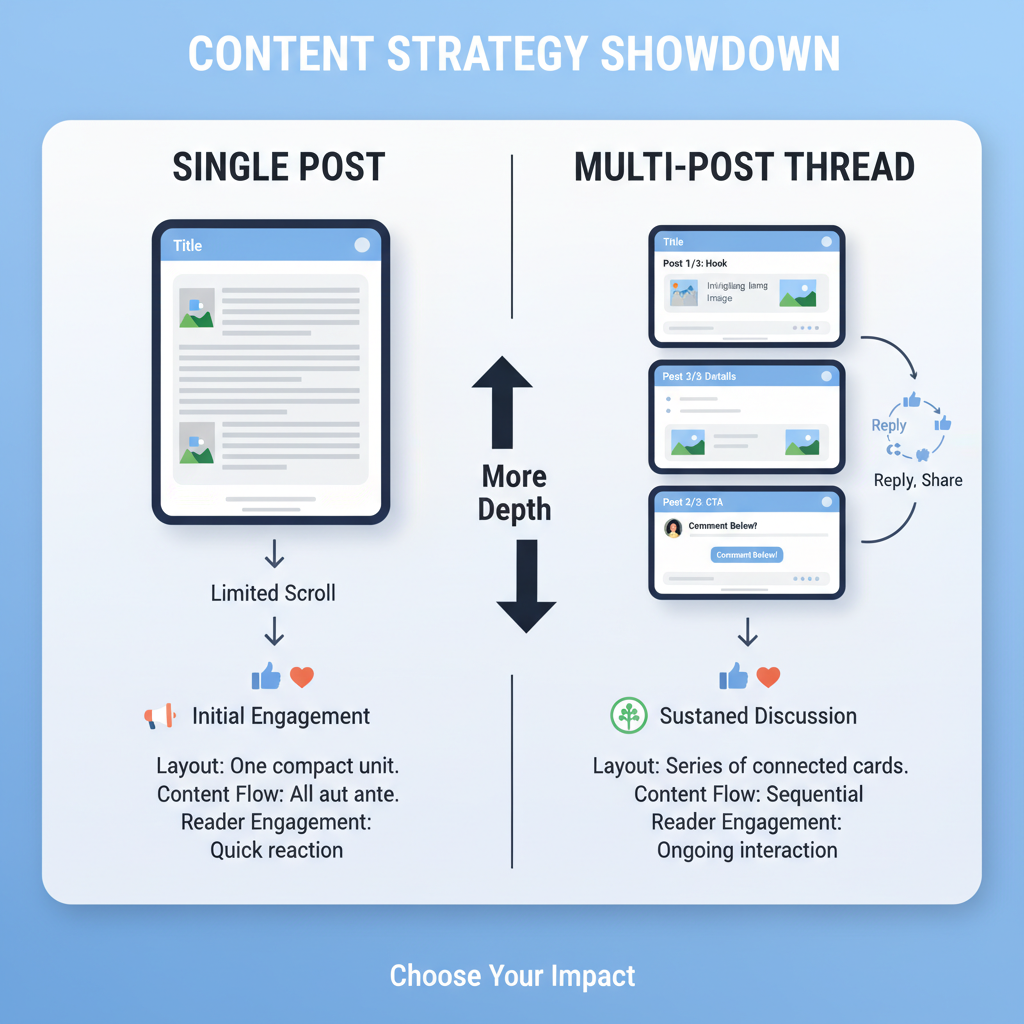
---
Summary and Next Steps
Understanding the thread meaning in social media equips you to harness its storytelling power. From roots in forums and email to dominance on platforms like Twitter/X and Reddit, threads offer unmatched depth, engagement, and versatility. By mastering the structure, timing, and content strategy, you can elevate your digital communication and build stronger audience connections.
CTA: Start your first thread today—experiment, refine, and watch your engagement grow.

